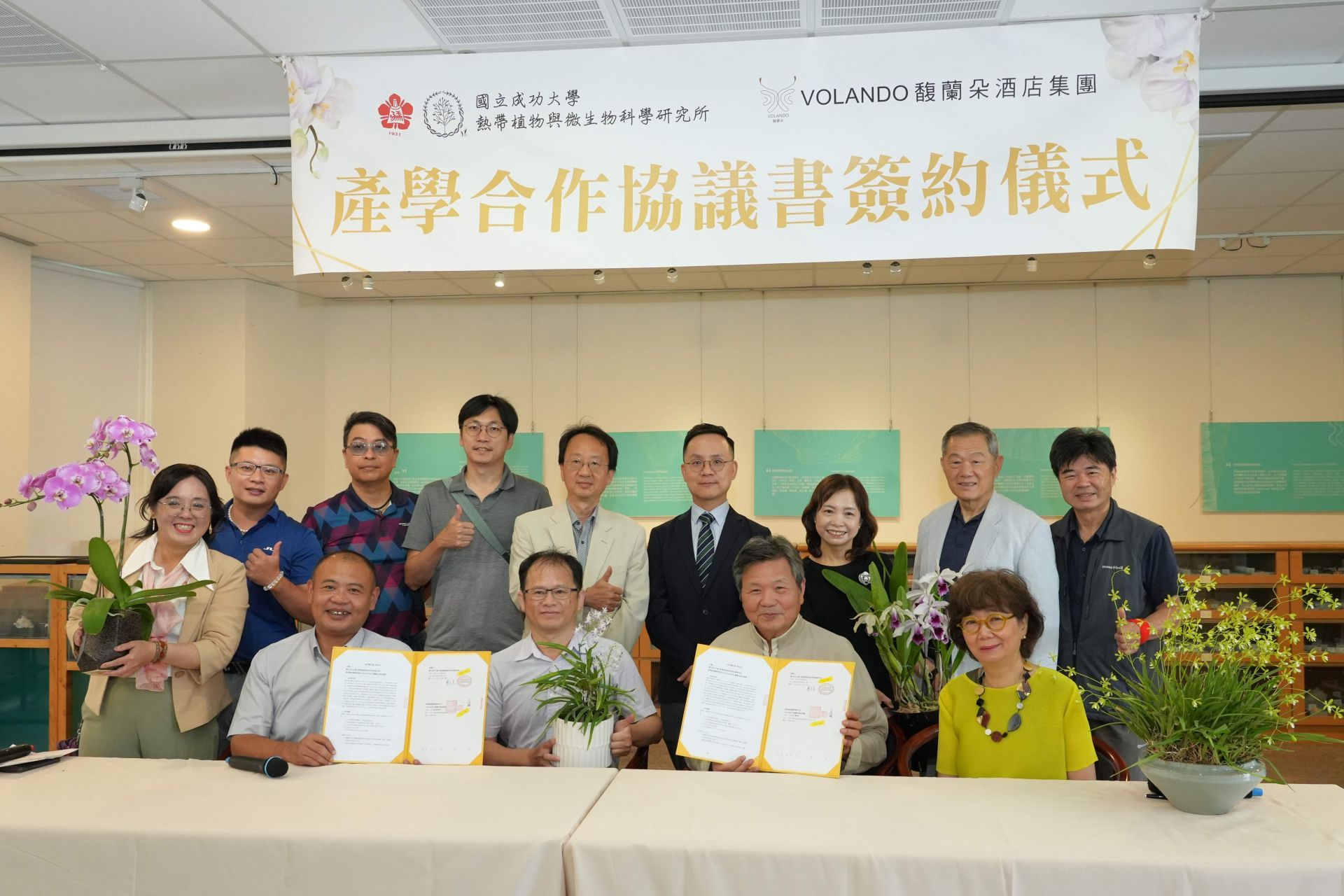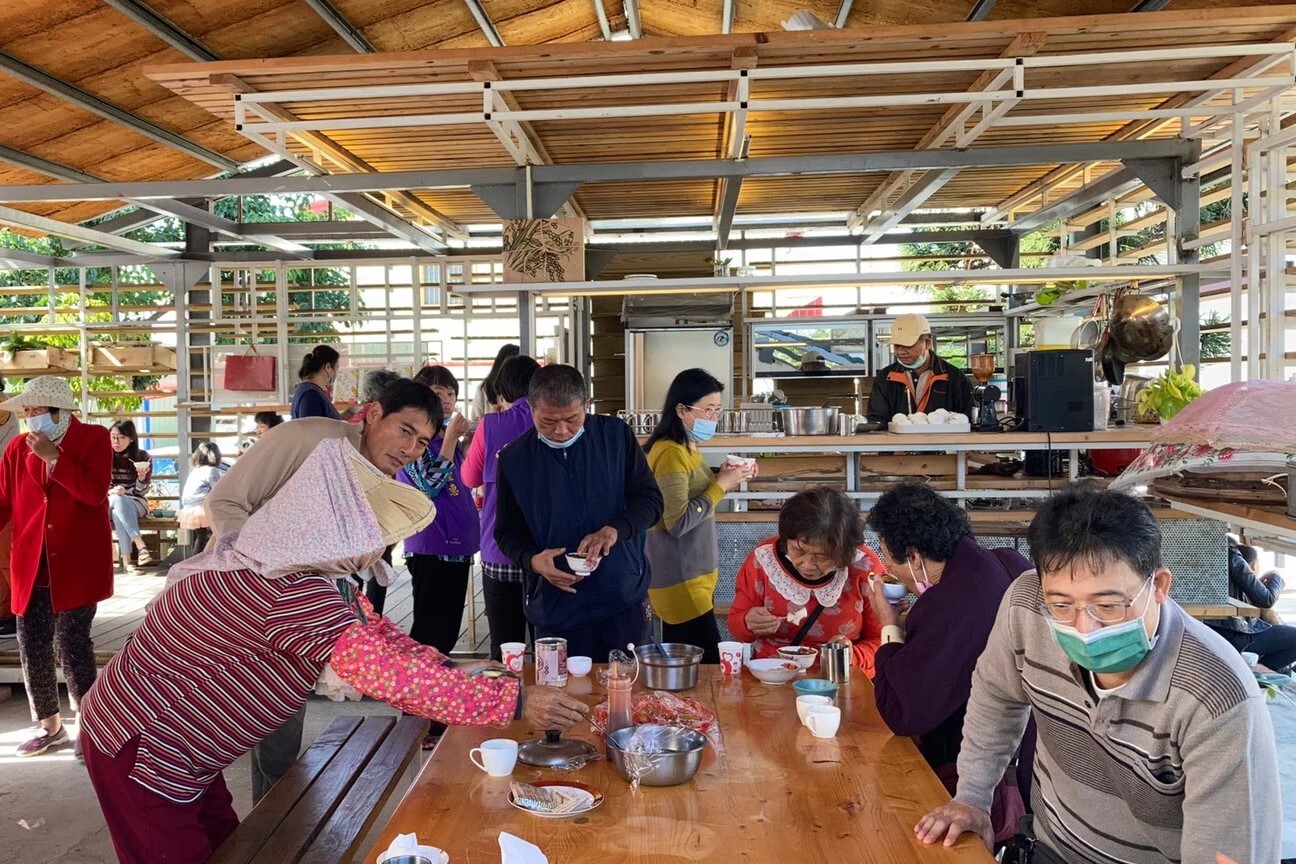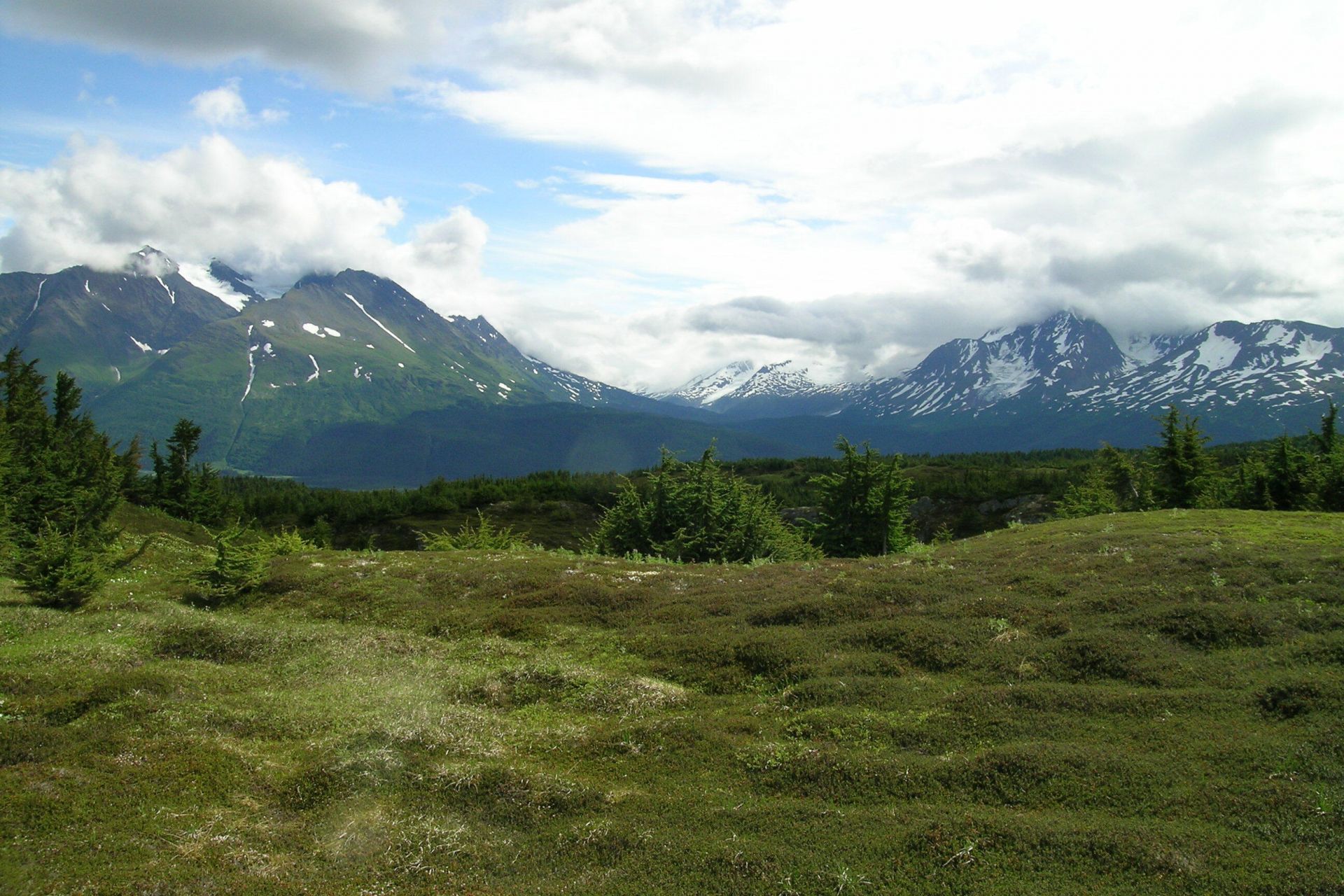SDG15
NCKU's Life Sciences Department's USR project on microbial farming enhances agricultural sustainability.
Professor Tzen-Yuh Chiang (Scopus) from the Department of Life Sciences at National Cheng Kung University (NCKU) spearheaded the second phase of the "University Social Responsibility (USR) Project" from 2018 to 2022. Taking the initiative to explore local needs, he served as a local think tank. Leading a team, he utilized microbial farming in the Xibei area of Tainan to connect agriculture with small farmers and local businesses, promoting sustainable agricultural development from a localized effort to a broader scale. In the third phase (2023-2024), besides advancements in agricultural biotechnology, the project also incorporates historical and engineering disaster prevention aspects. Furthermore, international collaboration will introduce foreign agricultural experiences to the local context, enhancing agricultural practices on both fronts.
In the first phase of the USR project, the team focused on introducing microbial technology into smart agriculture in the Xibei area of Tainan, particularly the important rice cultivation region of Hou Bi, using microbial farming (natural farming) methods. Through this approach, rice plants exhibited enhanced health and disease resistance, reducing farmers' reliance on chemical fertilizers and pesticides, thereby contributing to the development of distinctive local industries and increasing agricultural output. The team collaborated with local young farmers' groups to establish a "natural farming platform," which continues to foster interaction and support.
Professor Chiang highlighted the environmental and land impacts of long-term reliance on pesticides and chemical fertilizers, emphasizing the advantages of natural farming. Not only did adopting natural farming in Hou Bi lead to robust rice plants better equipped to withstand floods and resist diseases like rice blast caused by high temperatures and nitrogen levels, but it also resulted in a 33% improvement in participating farmers' practices. Rice cultivated using microbial farming underwent blind certification, with no pesticide residues detected and high praise for its protein content and taste, quickly selling out.
The project team extended microbial technology to processed products, including soy sauce (for enhanced production and diversity) and sake brewing. Extraction techniques and formulas were applied to essential oils, aiming to facilitate industry transformation and innovation, attracting young people back to rural areas.
In the second phase, "Introducing Microbial Technology into Smart Agriculture in Greater Tainan," the team expanded microbial farming beyond rice to various crops and applied microbial technology to agricultural circular economy initiatives, leading NCKU students in agricultural education experiences. Green asparagus is a significant economic crop in the Jiangjun area, but handling substandard asparagus poses challenges. Leveraging microbial fermentation technology, the NCKU team extracted root and stem nutrients and transferred technology to develop products like shower gel and essence. Additionally, by introducing beneficial bacteria into the soil through microbial farming, they helped farmers grow higher-quality asparagus, enhancing yields and value. Moreover, students were taken to the Syuejia area to experience organic farming and handpick tomatoes, subtly fostering awareness of food farming and safety.
Former General Manager Ming-Cheng Wu of the Jiangjun Farmers' Association commended NCKU's USR project. During his tenure, dealing with the excess 1/3 of asparagus that didn't meet purchase specifications was a headache. Thanks to Professor Tzen-Yuh Chiang's team, asparagus-derived products were developed and technology was transferred. Lacking research and development capabilities, the Farmers' Association benefited from NCKU's agricultural insights and technical assistance, supporting agricultural development in a different way.
In the third phase, "Tainan 400-Year Plan: From the Dao-feng Inland Sea to the Traditional Characteristic Industries of Dongyuanshan Forest Creek North," the team adopted a multidisciplinary approach. Examining the area from a humanistic and historical perspective, they traversed from the Beimen area along theDao-feng Inland Sea (now the Yanshui and Madou areas) into Houbi, Baihe, and Dongshan, reviewing the impact of natural disasters on human activities over 400 years. They analyzed industries and social structures, identified locally characteristic agricultural products, collaborated with the Tainan City Government to promote eco-tourism, and enhanced overall industry value through biotechnology.
Both the first and second phases were led by the NCKU team. The new phase will involve six partner universities, including National Tsing Hua University, National Kaohsiung University of Science and Technology, National University of Tainan, National United University, National Chung Hsing University, and National Pingtung University of Science and Technology. Through joint courses and local capacity-building activities, the project aims to train interdisciplinary talents, promote local culture, and enhance industries. Additionally, strategic alliances will be formed with Saitama University in the temperate zone and Bogor Agricultural University in the tropics, to share experiences in sustainable environments and industries and collectively address agricultural sustainability under global warming.
Professor Chiang stated that the new phase will continue to introduce microbial farming into crop cultivation or processing, including sesame, coffee, dragon fruit, etc., combining characteristic industries with local humanities and history, leveraging Tainan City Government resources to promote ecological tourism. Furthermore, based on historical records, the project team plans to cultivate soil suitable for indigo plants using microbial technology, assisting the local area in exploring new directions for the indigo dyeing industry in the 21st century.
Disaster prevention engineering will collaborate with partner universities to focus on slope land agriculture and ecological maintenance, addressing local environmental characteristics and the impacts of extreme weather, including slope stability, soil management, water resource utilization, and crop management, achieving agricultural and slope land biodiversity fusion and coexistence.
Professor Chiang emphasized that in addition to academic research and talent cultivation, universities must disseminate knowledge to the public to drive regional prosperity and development. The success of university social responsibility practices relies most importantly on people, including talent cultivation and interpersonal connections, followed by technology. Since the execution of the first and second phases, the team has not only provided technical guidance and training for locals but also offered courses on-campus, maintaining ongoing engagement and interaction with the local community. With the broad goals and involvement of many partners in the third phase, the execution team will continuously review each stage to achieve the expected goals and benefits, dedicating efforts to agricultural development.
In the first phase of the USR project, the team focused on introducing microbial technology into smart agriculture in the Xibei area of Tainan, particularly the important rice cultivation region of Hou Bi, using microbial farming (natural farming) methods. Through this approach, rice plants exhibited enhanced health and disease resistance, reducing farmers' reliance on chemical fertilizers and pesticides, thereby contributing to the development of distinctive local industries and increasing agricultural output. The team collaborated with local young farmers' groups to establish a "natural farming platform," which continues to foster interaction and support.
Professor Chiang highlighted the environmental and land impacts of long-term reliance on pesticides and chemical fertilizers, emphasizing the advantages of natural farming. Not only did adopting natural farming in Hou Bi lead to robust rice plants better equipped to withstand floods and resist diseases like rice blast caused by high temperatures and nitrogen levels, but it also resulted in a 33% improvement in participating farmers' practices. Rice cultivated using microbial farming underwent blind certification, with no pesticide residues detected and high praise for its protein content and taste, quickly selling out.
The project team extended microbial technology to processed products, including soy sauce (for enhanced production and diversity) and sake brewing. Extraction techniques and formulas were applied to essential oils, aiming to facilitate industry transformation and innovation, attracting young people back to rural areas.
In the second phase, "Introducing Microbial Technology into Smart Agriculture in Greater Tainan," the team expanded microbial farming beyond rice to various crops and applied microbial technology to agricultural circular economy initiatives, leading NCKU students in agricultural education experiences. Green asparagus is a significant economic crop in the Jiangjun area, but handling substandard asparagus poses challenges. Leveraging microbial fermentation technology, the NCKU team extracted root and stem nutrients and transferred technology to develop products like shower gel and essence. Additionally, by introducing beneficial bacteria into the soil through microbial farming, they helped farmers grow higher-quality asparagus, enhancing yields and value. Moreover, students were taken to the Syuejia area to experience organic farming and handpick tomatoes, subtly fostering awareness of food farming and safety.
Former General Manager Ming-Cheng Wu of the Jiangjun Farmers' Association commended NCKU's USR project. During his tenure, dealing with the excess 1/3 of asparagus that didn't meet purchase specifications was a headache. Thanks to Professor Tzen-Yuh Chiang's team, asparagus-derived products were developed and technology was transferred. Lacking research and development capabilities, the Farmers' Association benefited from NCKU's agricultural insights and technical assistance, supporting agricultural development in a different way.
In the third phase, "Tainan 400-Year Plan: From the Dao-feng Inland Sea to the Traditional Characteristic Industries of Dongyuanshan Forest Creek North," the team adopted a multidisciplinary approach. Examining the area from a humanistic and historical perspective, they traversed from the Beimen area along theDao-feng Inland Sea (now the Yanshui and Madou areas) into Houbi, Baihe, and Dongshan, reviewing the impact of natural disasters on human activities over 400 years. They analyzed industries and social structures, identified locally characteristic agricultural products, collaborated with the Tainan City Government to promote eco-tourism, and enhanced overall industry value through biotechnology.
Both the first and second phases were led by the NCKU team. The new phase will involve six partner universities, including National Tsing Hua University, National Kaohsiung University of Science and Technology, National University of Tainan, National United University, National Chung Hsing University, and National Pingtung University of Science and Technology. Through joint courses and local capacity-building activities, the project aims to train interdisciplinary talents, promote local culture, and enhance industries. Additionally, strategic alliances will be formed with Saitama University in the temperate zone and Bogor Agricultural University in the tropics, to share experiences in sustainable environments and industries and collectively address agricultural sustainability under global warming.
Professor Chiang stated that the new phase will continue to introduce microbial farming into crop cultivation or processing, including sesame, coffee, dragon fruit, etc., combining characteristic industries with local humanities and history, leveraging Tainan City Government resources to promote ecological tourism. Furthermore, based on historical records, the project team plans to cultivate soil suitable for indigo plants using microbial technology, assisting the local area in exploring new directions for the indigo dyeing industry in the 21st century.
Disaster prevention engineering will collaborate with partner universities to focus on slope land agriculture and ecological maintenance, addressing local environmental characteristics and the impacts of extreme weather, including slope stability, soil management, water resource utilization, and crop management, achieving agricultural and slope land biodiversity fusion and coexistence.
Professor Chiang emphasized that in addition to academic research and talent cultivation, universities must disseminate knowledge to the public to drive regional prosperity and development. The success of university social responsibility practices relies most importantly on people, including talent cultivation and interpersonal connections, followed by technology. Since the execution of the first and second phases, the team has not only provided technical guidance and training for locals but also offered courses on-campus, maintaining ongoing engagement and interaction with the local community. With the broad goals and involvement of many partners in the third phase, the execution team will continuously review each stage to achieve the expected goals and benefits, dedicating efforts to agricultural development.
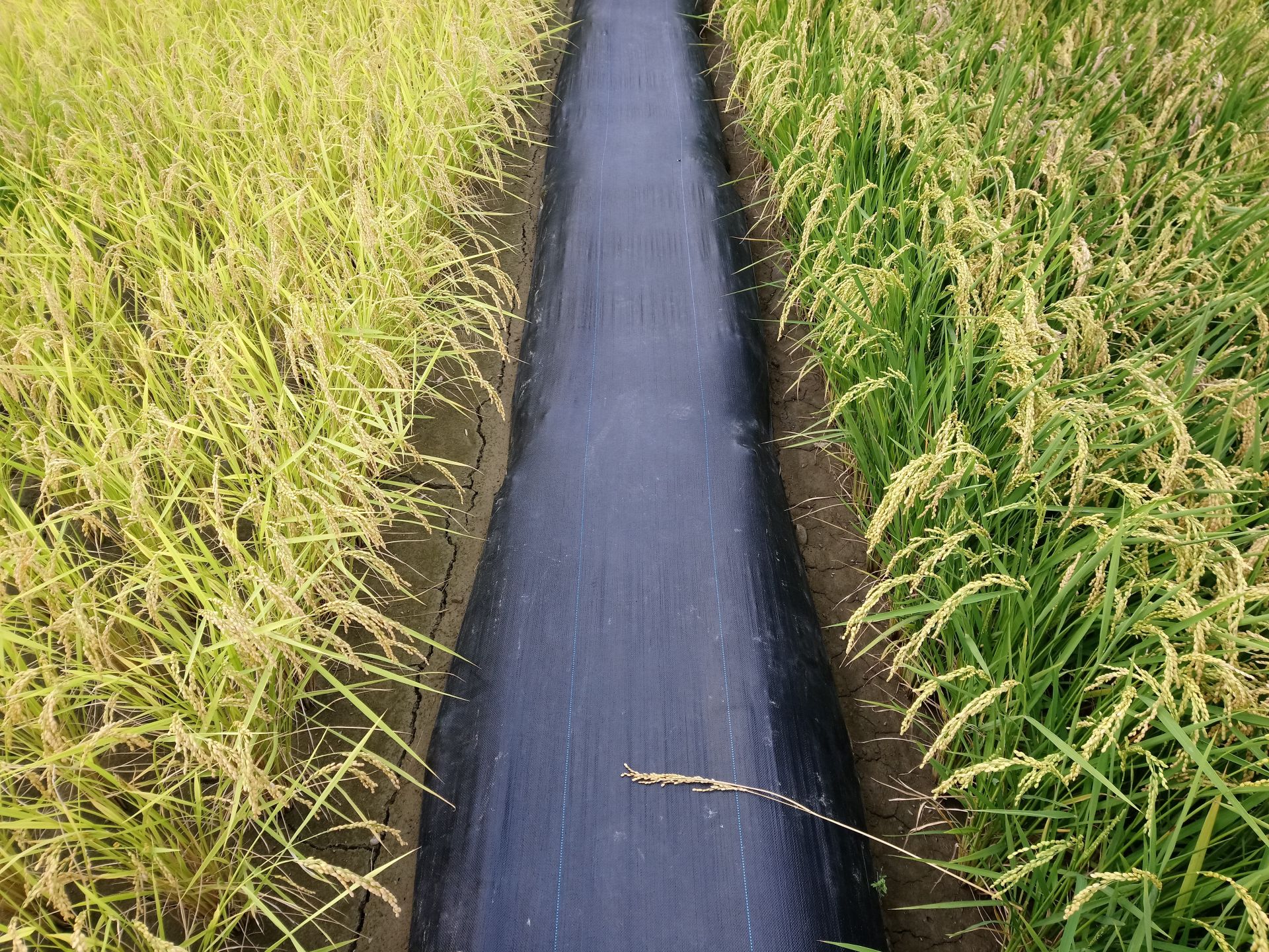
(Right) Traditional fertilization method, where the rice ears are overly plump before harvest. (Left) Introduction of microbial farming method, where the entire rice plant is in a healthy golden-yellow state.
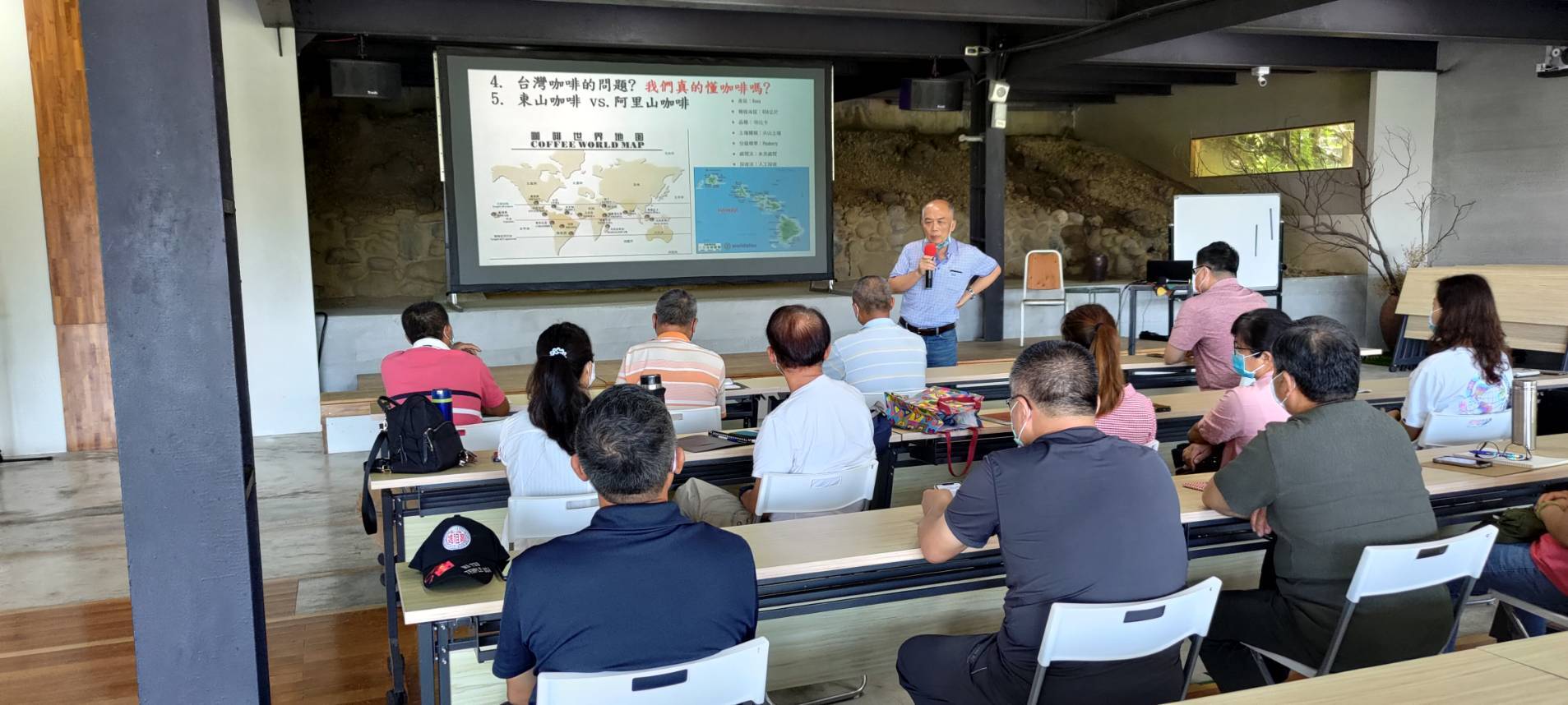
Professor Tzen-Yuh Chiang analyzed ways to enhance and improve the coffee industry for local people.
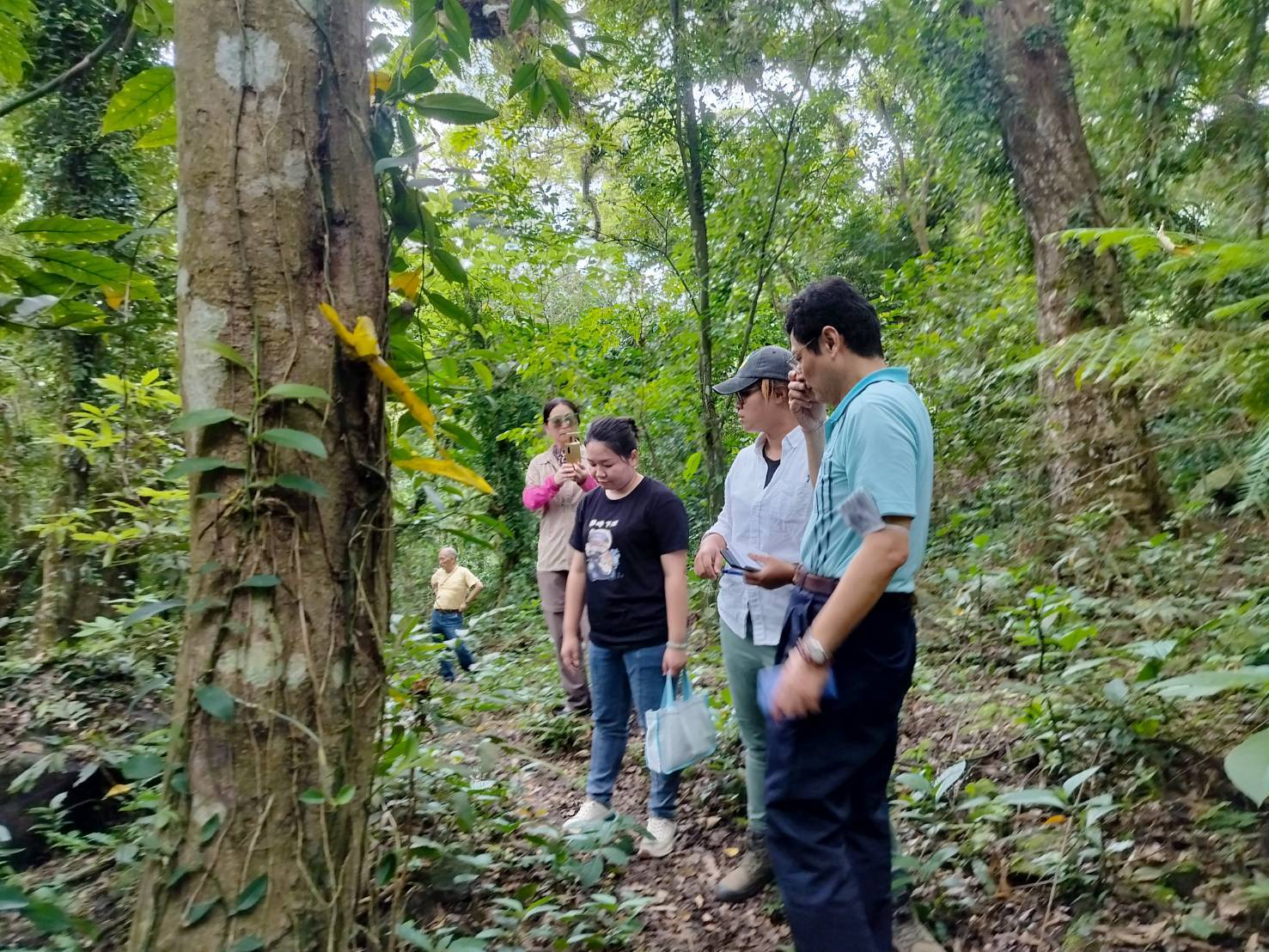
Assisting in exploring new life and directions for the "indigo dyeing" industry in the 21st century is one of the new project initiatives.





